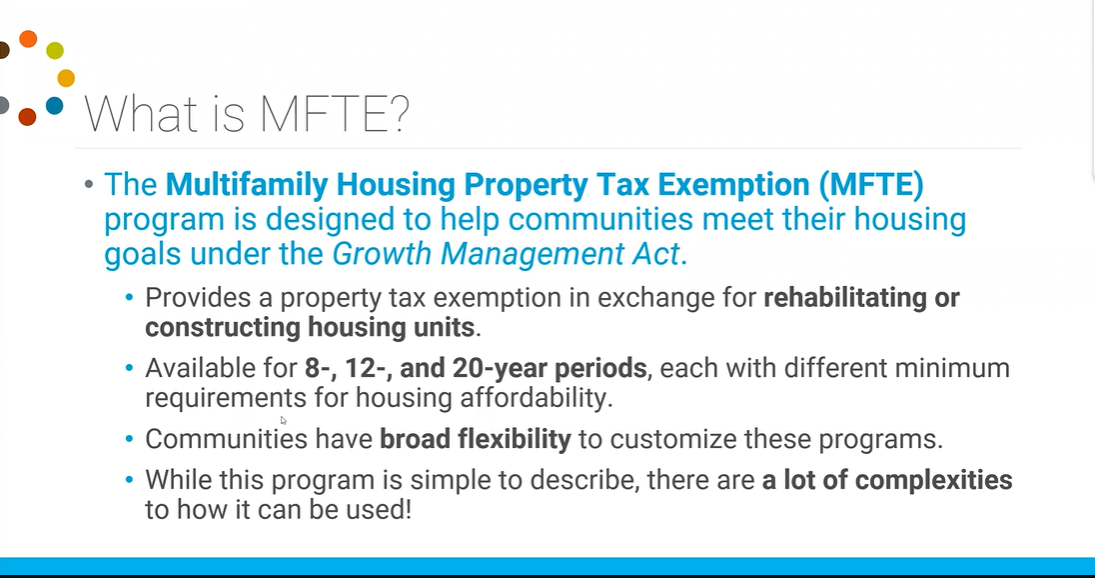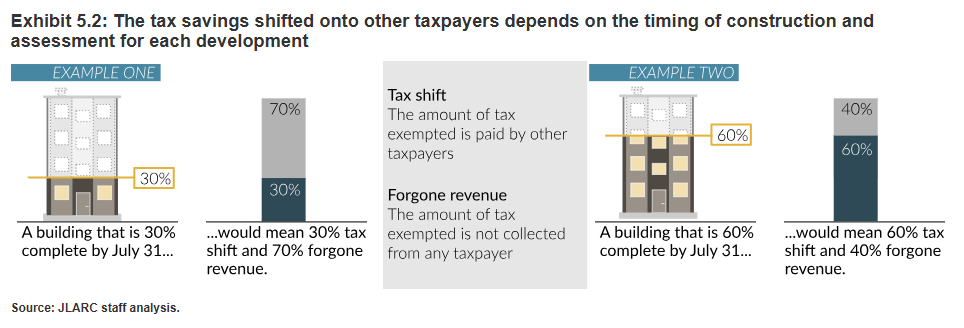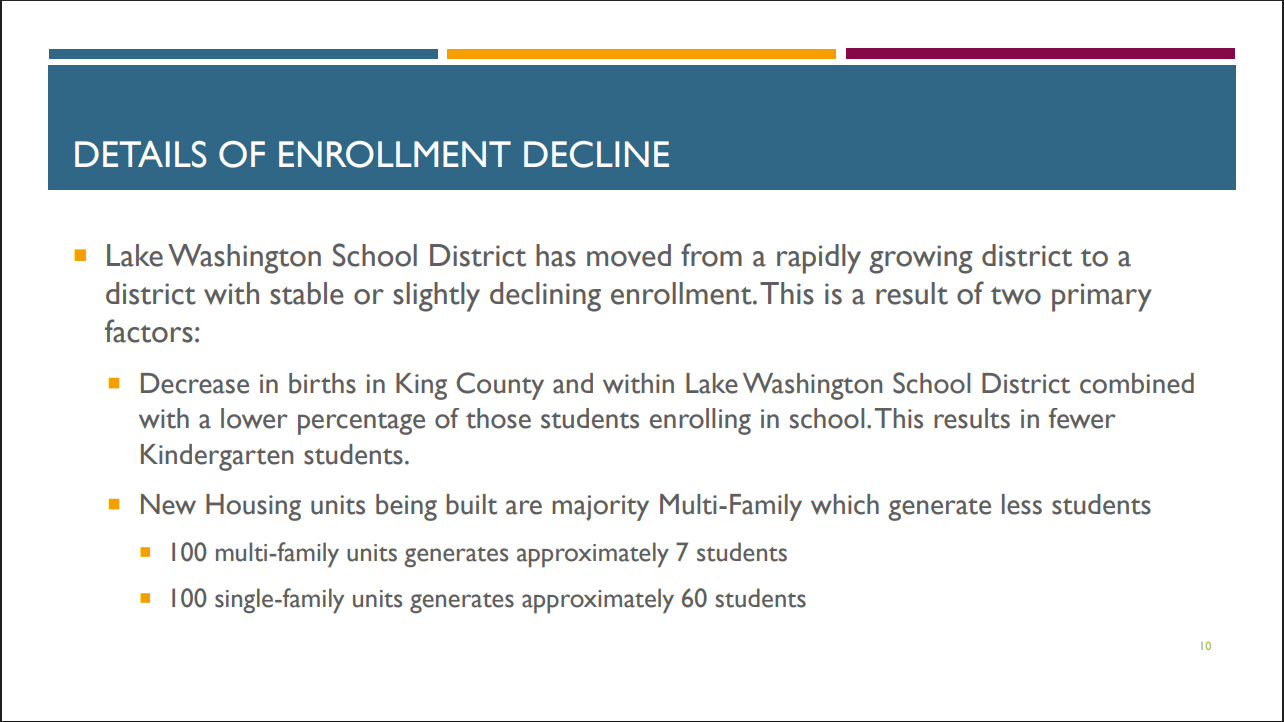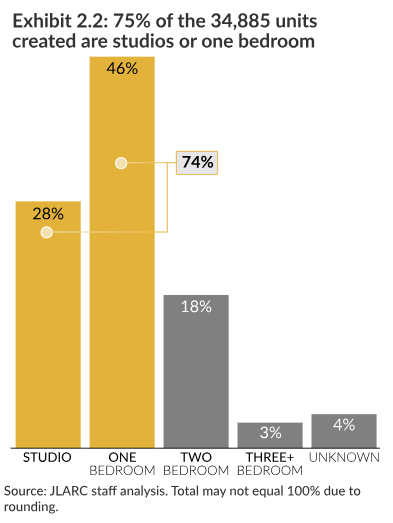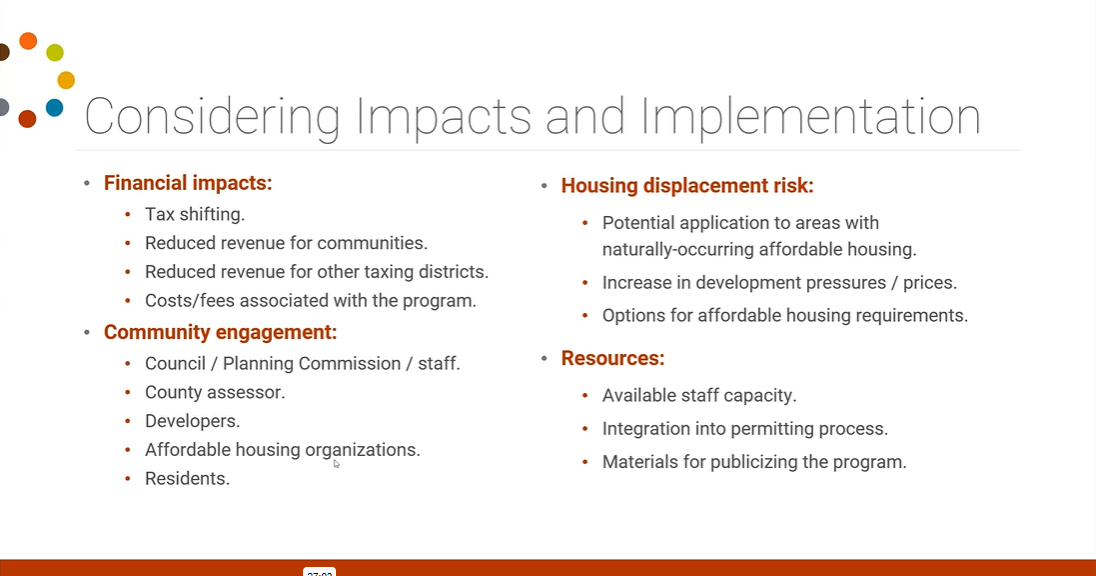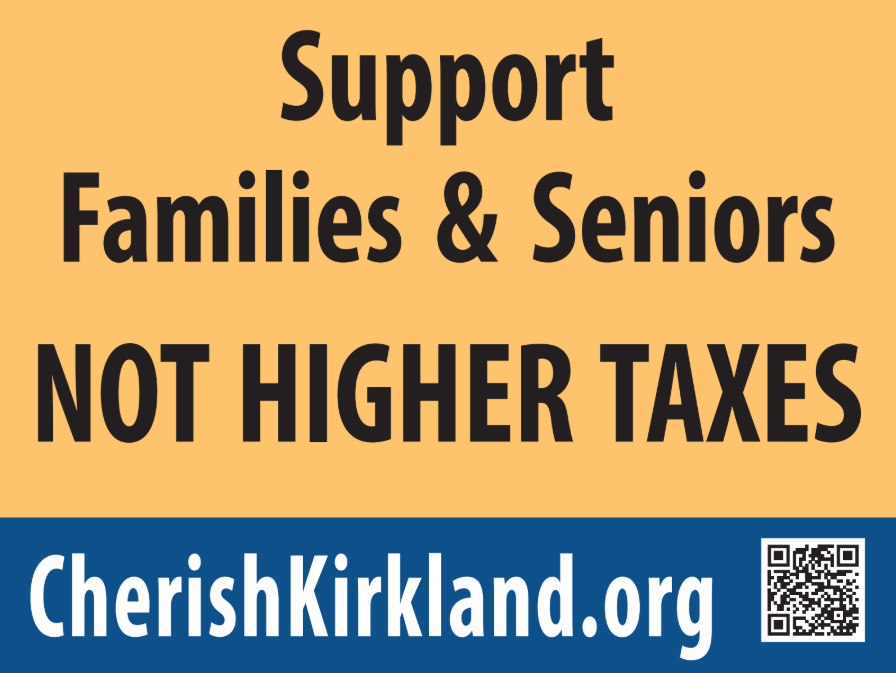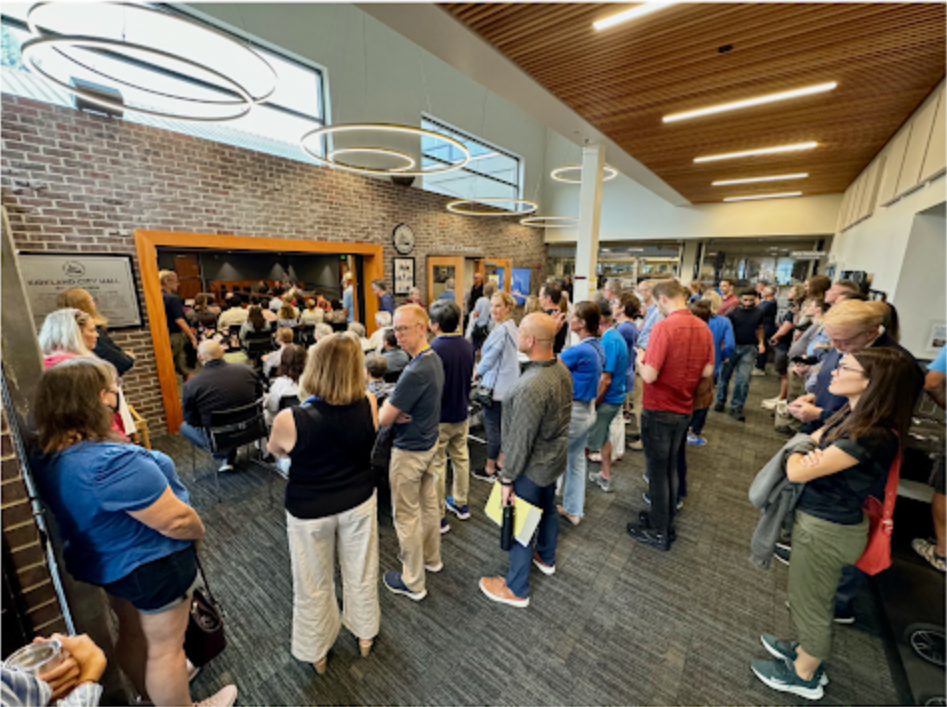
Taxes & MFTEs
MFTE shifts the financial burden away from large-scale developers and onto everyday taxpayers.
The Multi-Family Tax Exemption (MFTE) program gives tax breaks to multi-family housing developers in exchange for setting aside a small number of units as “affordable.” While that may sound like a reasonable trade-off, it has serious long-term consequences for Kirkland residents. These tax exemptions given to for-profit developers are funded in only one of two ways, both which negatively impact Kirkland residents:
Tax shift: Taxes paid by a property that later becomes exempt is “shifted” to the rest of the tax base (tax paying Kirkland residents). This is because the total amount of property taxes to be collected form the basis of the regular levy carried over from one year to the next. Simply put, you have the same amount of taxes to collect among fewer paying people. As a result, the cost of housing increases.
Foregone tax revenue: Property tax not included in the historic baseline that would have been paid if the property was not tax exempt is not recovered (think property improvements). This reduces the total amount of tax revenue to Kirkland, while increasing the total population. This can be acutely felt if a few single family homes are replaced by a large development. In short, Kirkland will receive less tax revenue on a per person basis, even after a tax shift, and can result in a deterioration in the quality of government provided services.
Additionally, many community members now include quotes around the word “affordability”, because whether “affordable” is defined as housing for someone who makes 80%, 50%, 30%, or 0% of area median income is also negotiable — yet the tax discounts to the developer are still expected.
This is further exacerbated by the waiver of impact fees. Usually, developers pay one-time impact fees to help fund investment in roads, parks, schools, and emergency services because new buildings bring new residents who create incremental demand. Under a MFTE, those fees may be waived.
Meanwhile, the City’s own April 2025 study session revealed the following (source):
Transportation infrastructure costs have jumped by over $30 million compared to 2021
The number of expected new trips from development has grown by more than 40%
Despite this, per-trip fees are being reduced, and some projects still pay nothing under MFTE
Individual homeowners, on the other hand, could face impact fees of up to $9,887 per single-family home, and over $20,000 for homes with an ADU and DADU
Other communities are already seeing budget impacts. Just look at Hummingbird Hill Park in Edmonds, where budget constraints have left the future of shared community space uncertain. Kirkland is proud of our many parks; we need to be sure we can fund their upkeep, along with all of the other amenities and services that keep Kirkland not only desirable, but livable.
What does this mean in real terms?
Developers get exemptions that protect margins to allow them to produce affordable housing
The city gets less money to build and maintain public services
Existing residents pay more, or watch parks, roads, and emergency systems fall behind
Truly affordable older rental or ownership housing stock is reduced due to redevelopment into mostly smaller, luxury multifamily units that are not always shared household or senior friendly.
Downstream impacts can also be many - for example detrimental to families and neighborhood schools due to per-student state funding when the declining birth rate is compounded with smaller housing units replacing older, affordable family homes.
Advocacy groups like Futurewise successfully pushed to make MFTE mandatory in the Transit-Oriented Development (TOD) bill. Their intentions may have been good, but the impacts are real, especially in Kirkland where nearly 90% of our ambitious growth target is subsidized housing. We need to keep the local budget under local control.
We support affordable housing—but it has to be fiscally sustainable and fairly distributed. MFTE needs reform. Kirkland’s residents should not have to carry the weight of policies that promise affordability, but quietly drain the resources we all rely on.
Developer Agreement and MFTE DECISIONS are ongoing.
The Kirkland City Planning Commission is currently deciding on how to move forward with 3 or more major housing development projects - all associated with affordable housing goals i.e. Goodwill, Michaels and Houghton Village.
There are also examples of MFTEs awarded to developers at Totem Lake and Kirkland Crossing. Alternatives exist to help with housing affordability i.e. housing vouchers, and there is MFTE guidance from the state about if/when and how carefully to exercise MFTEs.
When the Planning Commission and City Council review “CARs” and “DAs” residents can and should ask questions and provide input with this knowledge of the potential impacts to our city’s budgets, individual property taxes and rents, as well as to community resources.
Article: State Report Deems MFTE’s Role In Boosting Housing Production “Inconclusive”
Source: The Urbanist, August 29, 2019
“Washington State’s Joint Legislative Audit and Review Committee (JLARC) could not prove if the millions of dollars developers saved through Multifamily Family Tax Exemption (MFTE) have actually created a “net increase” in housing development across Washington State...” Read the full article
Act Now on Taxes!
Ask for a Senior Solution
Help Kirkland Seniors with Affordable Housing
Write the City Council today and tell them think about solutions that help Seniors with more housing options to “stay in place” in their neighborhods - an idea backed by many Houghton residents and nextdoor school families (concerned about regular housing at this site adding commuter traffic).
Access suggested text and send a letter to the city council about these latest policy proposals.
Join Us
on Facebook
Join our Facebook group to stay abreast of the latest development agreements, legislation impacts, and an approachable group discussion supported by experts around such complex tax related topics like MFTEs.
Show up!
@City Hall on every other Tuesday
Help us bring the blue to City Hall! So City Council knows Kirkland voters stand behind a non-partisan elected body that knows its job is to be careful stewards of taxpayer funding - keeping Kirkland affordable and not treat existing residents like a blank check.
Kirkland City Hall - 123 5th Ave, Kirkland, WA 98033 (Directions)
Related issues:

